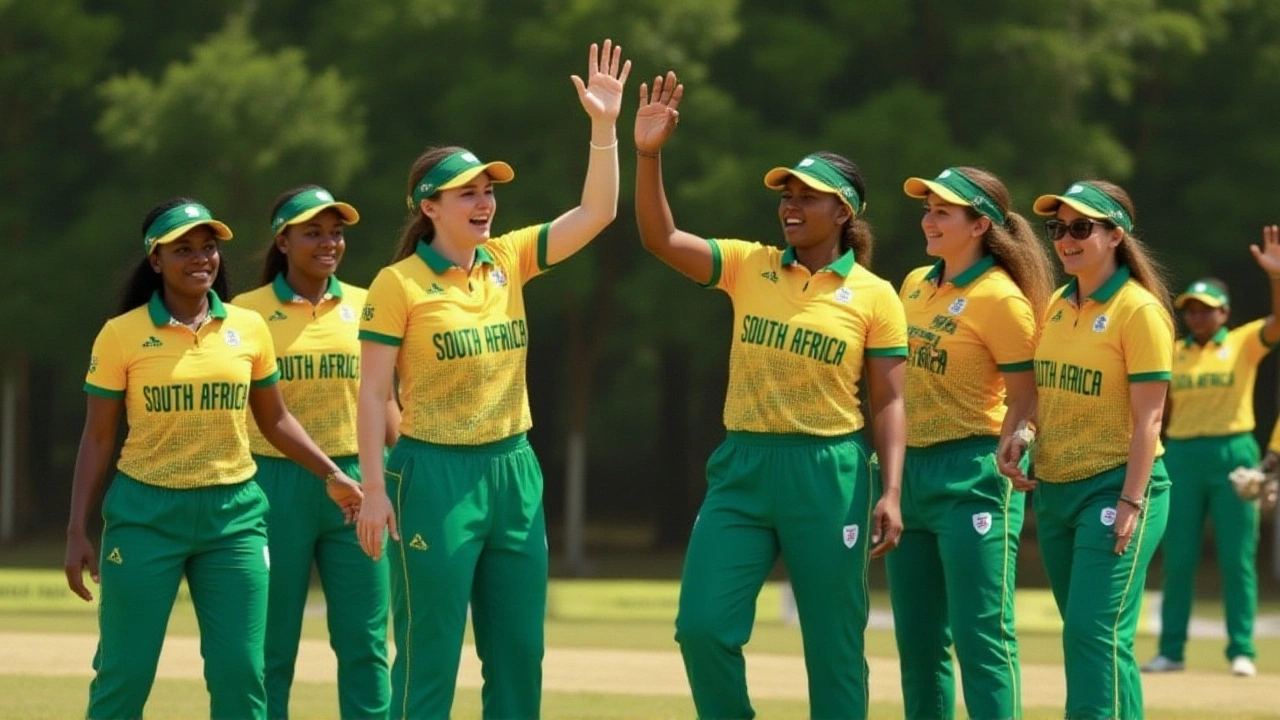Women's African Games – Your Quick Guide to Africa’s Premier Women’s Multi‑Sport Event
When you hear Women's African Games, a continent‑wide multi‑sport competition focused on female athletes, held every four years under the African Union Sports Council, you picture a showcase of talent, culture and progress. Also known as African Games – Women’s Edition, it brings together more than 3,000 competitors from 54 nations. Women's African Games isn’t just a tournament; it’s a platform that amplifies women’s voices across the continent, fuels national pride and drives investment in sports infrastructure.
At the heart of the event sits the African Union Sports Council, the governing body that organizes the African Games and oversees sport development across Africa. This council sets the calendar, secures funding and ensures each edition meets international standards. Its partnership with national Olympic committees creates a pipeline for talent, turning local prodigies into world‑class athletes. The council’s role illustrates how a regional authority can shape the future of sport on a massive scale.
Key Sports and What They Mean for the Continent
Among the many disciplines, Athletics, track and field events that draw the biggest crowds at the Games stands out as the flagship. Sprint races, long jumps and marathon runs not only produce medal moments but also set qualifying standards for the Olympics. Beyond athletics, boxing, weightlifting, swimming and team sports like football and basketball feature heavily, each offering a different pathway for athletes to shine on the global stage.
Another driving force behind the Games is Gender Equality, a core objective that pushes for equal representation and resources for women’s sport in Africa. By mandating equal event numbers for men and women, the Games send a powerful message to governments, sponsors and fans. The ripple effect can be seen in increased school‑girl participation, more scholarships and a rise in women coaches and officials across the continent.
These entities interlock in simple ways: the African Union Sports Council organizes the Games, which include athletics and other sports, and the whole effort promotes gender equality. In other words, Women's African Games encompasses athletics, boxing, swimming and many more, it requires the African Union Sports Council to run smoothly, and it influences gender equality across Africa. This chain of relationships creates a virtuous cycle where each part strengthens the others.
From a fan’s perspective, the Games deliver drama, national rivalries and unforgettable moments. The final of the women's football tournament often mirrors a World Cup final, while track duels can break continental records. Media coverage has grown exponentially, with broadcasters streaming live to millions of households, and social platforms amplifying behind‑the‑scenes stories of athletes overcoming adversity.
Looking at the broader impact, the Games act as a catalyst for economic development. Host cities invest in stadiums, transport links and hospitality, which generate jobs and boost tourism. Local businesses benefit from the influx of visitors, and the legacy of upgraded facilities continues to serve communities long after the medals are handed out.
All these pieces—governance, sport, equality, economics—come together to make the Women’s African Games a unique fixture on the African calendar. Below, you’ll find a curated list of recent stories that dive deeper into the competition’s highlights, athlete profiles, policy debates and behind‑the‑scenes insights. Whether you’re a casual fan, a sports professional or someone curious about how sport can drive social change, the articles ahead will give you a richer picture of why this event matters today.

Tanzania Women’s One‑Wicket Thriller Stuns Namibia in Accra
Sep 30, 2025 / 16 Comments
Tanzania Women snatched a one‑wicket win over Namibia in Accra during the Women's African Games 2024, but a net‑run‑rate shortfall kept them out of the semis.
READ MORERECENT POSTS
- Olympics 2024: The Largest Fleet of ILCA Sailboats Set to Compete in Marseille
- Benin Republic Prepares Intensely for 2025 AFCON Qualifier against Nigeria's Super Eagles
- 2024 Paris Olympics Opening Ceremony: A Historic and Unprecedented Start to the Summer Games
- Reflecting on One Year of Conflict: Israel's Ongoing War on Gaza and Its Global Repercussions
- Portugal vs. Slovenia: Euro 2024 Clash, Lineup Predictions, Live Stream Details, and Latest Odds
